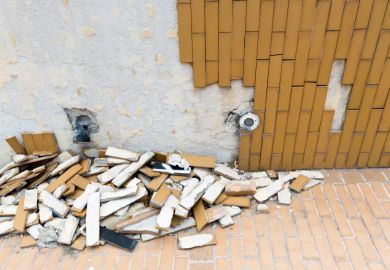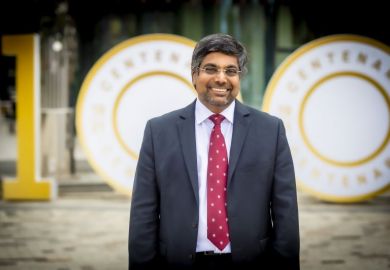First responder to medical emergencies is not the most relaxing job, but paramedics’ stress levels increase when they move into academia.
A review of research into occupational stress among Antipodean academics has identified “transition from field of practice” as a major trigger. The study, by academics at Australia’s Southern Cross University (SCU), highlights the “culture shock” of moving into a “looser, less structured” profession with multiple responsibilities.
“Any role transition can be psychologically stressful,” the researchers report in the Journal of Higher Education Policy and Management. “Navigating the transition from the field of practice to academia requires staff to take on an academic identity…a process of simultaneously ‘letting go’ and learning new ways of thinking and being.”
The paper cites a 2019 study of Australian and New Zealand paramedics who made the jump from clinical practice into academia. “[They] reported stresses related to lack of support and role uncertainty, lack of acceptance by their clinical peers and a lack of constructed academic identity. Balancing teaching, research and publishing led to significant stress and feelings of inadequacy.”
A 2014 study of occupational therapists in 11 Australian universities found that many were “weighing up” whether academia was a “good fit”. Richard Lakeman, a co-author on the more recent paper, said that he had observed the same phenomenon among his colleagues who had been “nursing directors and accomplished physios and psychologists”.
“You can be at the top of your game as a health professional, and then you’re at the bottom of the ladder in the academic world. There’s a lot of: ‘Shall I? Shan’t I? Is this really for me?’ We’ve had quite a lot of our local workforce go back into clinical practice, saying ‘Forget it, enough of this.’”
Dr Lakeman said that salary was a factor, with professional clinicians sacrificing A$50,000 (£27,000) or more to work in academia. Clinicians accustomed to “dealing with the person in front of you” also struggled with a less personal environment.
“I was a group facilitator in a mental health unit,” he said. “When I went into education, I thought I’d facilitate groups of really keen students. It wasn't like that at all – it was all about, ‘What’s the exam?’ and ‘You need to publish X number of papers.’”
Lead author Megan Lee, an SCU doctoral candidate, said that academic workloads also presented a problem. “A lot of early career researchers take on 100 per cent teaching roles just to get their foot in the door,” she said. “Then they realise that to get promotion past lecturer position, you need to be actively researching and publishing.
“But you have to do that outside your 100 per cent teaching role. Where do you fit in research, teaching and family, plus quality of life?”
The review identified workloads, casualisation and managerialism as major factors in academics’ occupational stress. But the most surprising finding was the lack of research around other stressors – particularly student evaluations.
Dr Lakeman said that while many colleagues reported being stressed by anonymous student feedback, the issue earned scant mentions in studies. “A lot of the literature is quite old,” he said.
“Only a few pieces of work have been published in the last five years [but] technology has escalated. People can sit on their mobile phones and fill out evaluations. This goes hand-in-hand with the rise of social media – this overvaluing of anonymous feedback.”
The research team aims to generate fresh data through a survey on the impact of anonymous student feedback on teaching staff.
Register to continue
Why register?
- Registration is free and only takes a moment
- Once registered, you can read 3 articles a month
- Sign up for our newsletter
Subscribe
Or subscribe for unlimited access to:
- Unlimited access to news, views, insights & reviews
- Digital editions
- Digital access to THE’s university and college rankings analysis
Already registered or a current subscriber?








